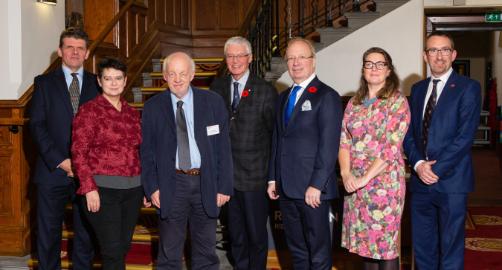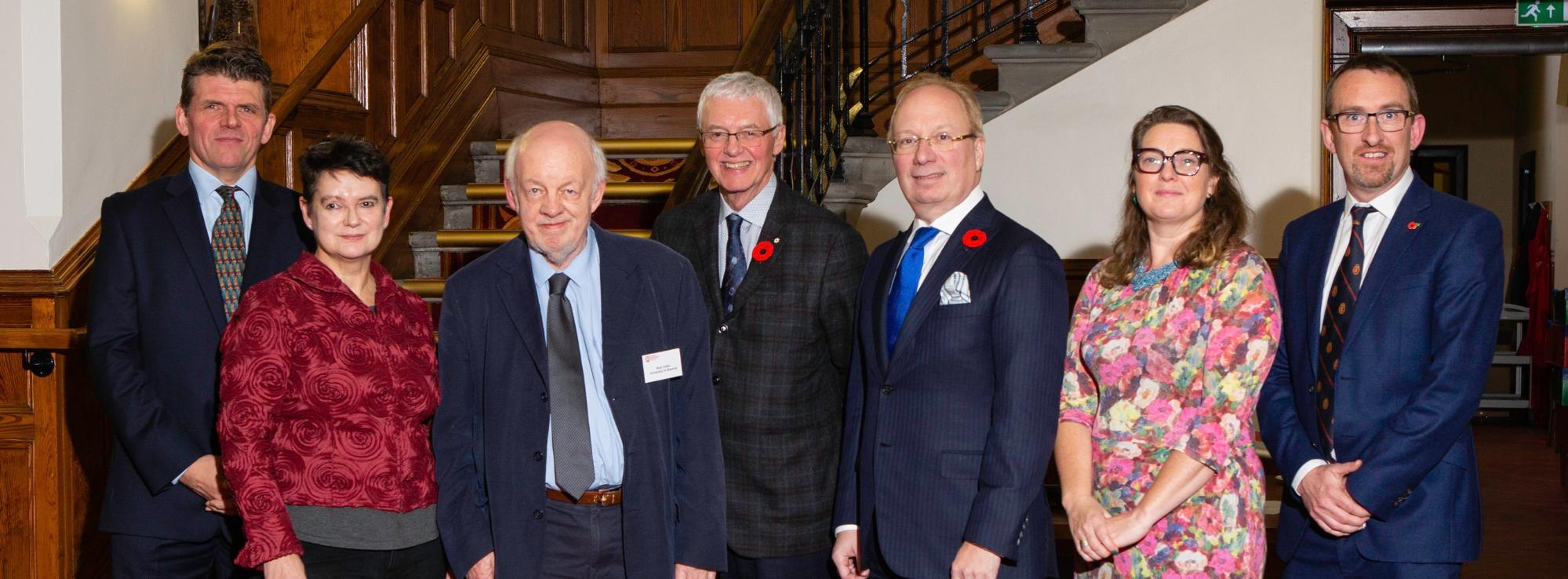Friday 08 November
Confronting the Productivity Challenge
Economists, business leaders, senior civil servants and academics from Northern Ireland and Canada gathered to facilitate a Chatham house rules discussion at Riddel Hall on Friday 8 November.
In his opening remarks Professor John Turner noted that, "Productivity is a system-wide problem - so the complexity and interconnectedness of all systems points toward longer term solutions. But short term thinking and focus is pervasive, and that makes the challenges more complicated"
For 250 years, consistent improvements in productivity have created an engine for economic growth, greater prosperity and better standards of living. Since the Global Financial Crisis, that two-and-a-half century winning streak has stalled: productivity has flat-lined. A stalling productivity engine has major long-term consequences for the future of economic growth, prosperity and standards of living.
Productivity constitutes a serious challenge both for enterprise and for public policy - inside firms and acorss the national and international economies. For businesses productivity is a driver of profits and a catalyst of scale and growth within businesses. The lack of strategic focus on productivity improvement holds back many companies: repeated failure to invest, or to deploy technology are two of the most serious problems. Yetthe challenge is not only aboue investment and technology deployment: commentators also point to the ened to develop managerial culture and practices as equally important in delivering productivity imporvements. How can business leaders ensure that their managers are suitable equipped for the tasks?
For policymakers, a different but complementary set of considerations are at play. A broad range of policy factors relating to investment, innovation, technology, enterprise, and skills are linked to productivity growth. The role of technology is widely debated, with some commentators pessimistically arguing that the major technological breakthroughs have already occurred. Others suggest those breakthroughs were not breakthroughs at all – that they failed to deliver the expected productivity benefits. Others have a different view, emphasizing the continuous innovation driving advances in nanotechnology, artificial intelligence, and biotech as clear instruments to boost productivity in multiple sectors. How can policymakers stimulate innovation ecosystems, whilst enabling businesses to leverage subsequent breakthroughs?
This is the grand challenge that addressed in this LRI Roundtable event. The event offered the opportunity to consider what business leaders and policymakers can do to address the challenge of low productivity and discuss related issues such as the future of work and the role of business schools and universities in driving innovation and improvements in management education that positively affect productivity.
The speakers and panel members comprised of: David Paulsen, Queen's University Management School; Diane Coyle, University of Cambridge; Nick Crafts, University of Warwick; Kevin Lynch, BMO Financial Group; Laurence Mussio, SIERCO Canada; Emma Flynn, Queen's University Belfast; John Turner, Queen's University Management School; Michael Aldous, Queen's University Management School; and Angela McGowan, CBI.



